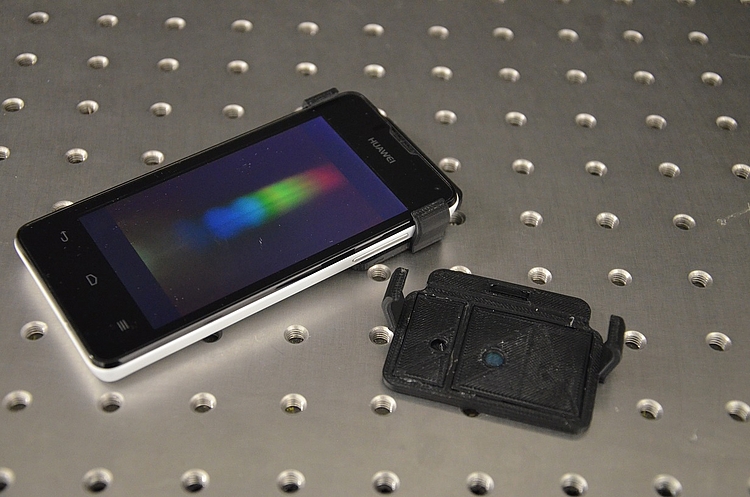Smartphone based optical point of care tests

| Led by: | K. Bremer, B. Roth |
| E-Mail: | kort.bremer@hot.uni-hannover.de |
| Team: | M. Rahlves |
| Year: | 2017 |
| Funding: | Bundesministerium für Wirtschaft und Energie (BMWi) und Europäischer Sozialfond (ESF) |
In a proof of principle study we demonstrated an optical waveguide based surface plasmon resonance (SPR) sensor system for smartphones in order to accurately measure refractive index variations of the surrounding. The main components of the smartphone sensor system are an optical waveguide, an SPR sensor element, a diffraction grating as well as optical input and output couplers. The input and output coupler are required to couple light from the LED of the smartphone to the optical sensor system and from there to the smartphone-integrated camera. By employing the diffraction grating the wavelength shift of the SPR due to a refractive index (RI) change of the surrounding is monitored.
The aim of this research project, which is funded by the Federal Ministry for Economic Affairs and Energy (BMWi) as well as European Social Fund (ESF), is to develop aptamer functionalized optical waveguide surface plasmon resonance (SPR) sensors that are designed for smartphone based point of care testing (POCT) applications. The optical waveguide SPR sensors are polymer-based planar-optical sensor chips, which are fabricated using hot embossing and doctor blading techniques. The aptamers are immobilized on a gold coated sensor surface and are directed against the C-reactive protein (CRP) or brain natriuretic peptide (BNP). Thus, the goal of the project is a simple and cost-efficient smartphone-aided single quantitative biomarker detection of CRP or BNP in human blood.
